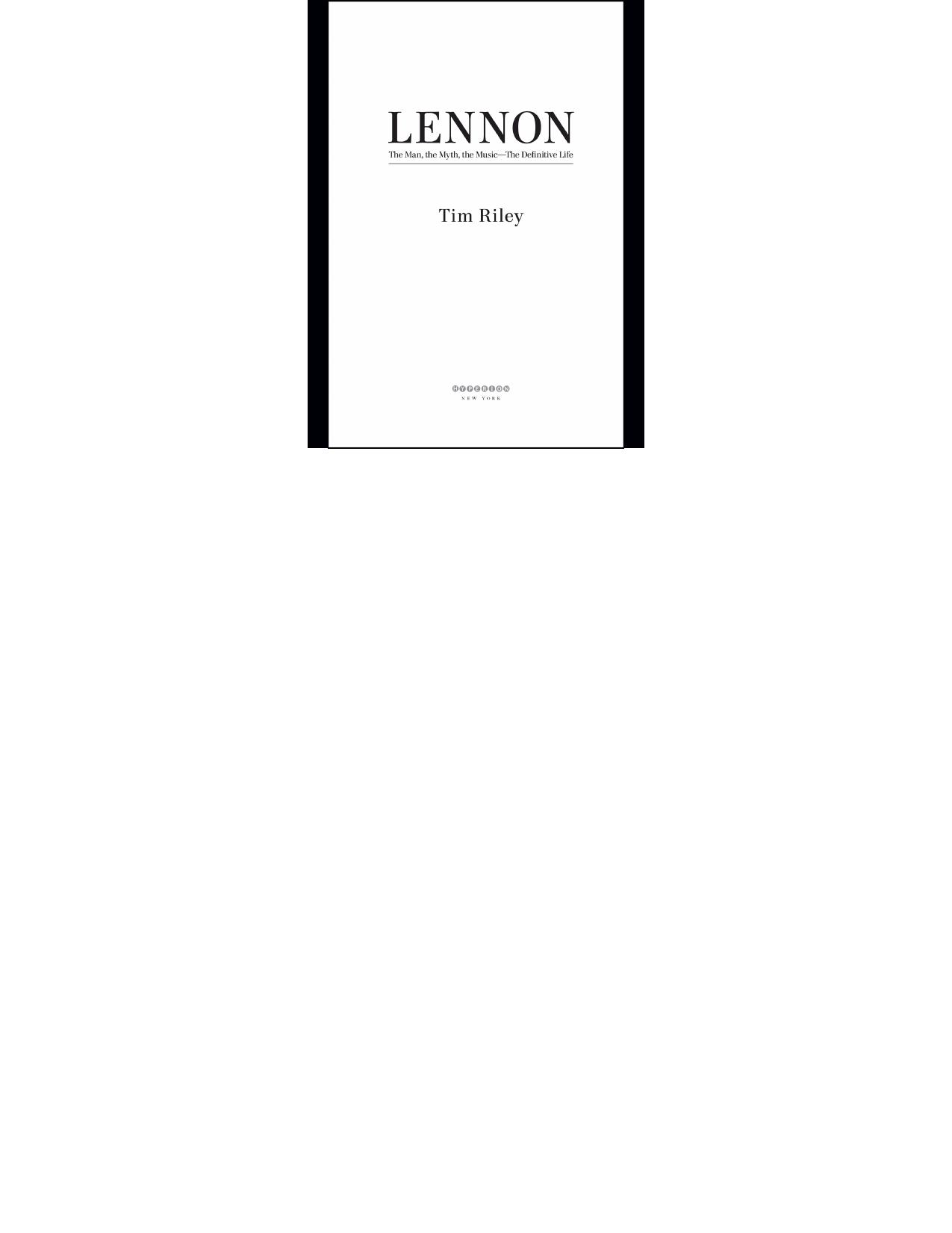Lennon by Tim Riley

Author:Tim Riley
Language: eng
Format: mobi, epub, pdf
ISBN: 9781401303938
Publisher: Hyperion
Published: 2011-11-12T16:52:13+00:00
Chapter 16
I Should Have Known Better
The sheer density of events between 1968 and 1970, the late-Beatle period that produced The White Album, Let It Be, and Abbey Road, can still detract from their accomplishments on these albums. Perched as they were atop twin ideals of hope and unity, the band began to splinter. World events synced up uncannily with Lennon’s personal upheavals, triggered by a gaping career disconnect at the end of 1967: where unwieldy Beatlemania led to a defining essay on fame and their persona with Sgt. Pepper’s “A Day in the Life,” the amateurish unraveling of Magical Mystery Tour telegraphed Lennon’s larger detachment. As they descended an old-fashioned Hollywood staircase in white tuxedos to sing its finale, “Your Mother Should Know,” they couldn’t have been more out of touch.
This Beatle career crisis shrank against the larger historical canvas: instead of bounding out ahead (as they had with Rubber Soul and Revolver), the band began to play catch-up with its audience. The battles between students and their parents, soldiers and the fathers who cynically sent them to Vietnam while denying them the right to vote, between patriotic hard-hat construction workers and the college-deferred sons (and daughters) of the ruling class, reached a contentious pitch in America rarely seen since. The great “Classic Rock” explosion during the Beatles’ middle period (1965–67) had slowed time down, even made it stand completely still. In the early months of 1968, world events tumbled ahead at a frightening pace, and the cultural shifts took manic swerves. In this late phase, the Beatles cultivated their own disintegration as a late theme, as if rock celebrity had become so all-consuming that they could only reinvent themselves as individuals.
It’s worth remembering, however, that for one sunny season, 1967’s fabled Summer of Love, Lennon’s “All You Need Is Love” revived all the hope and possibility Beatle music had pointed toward since “She Loves You” and “I Feel Fine” and “The Word.” While it lasted, “All You Need Is Love” emblemized the dreamy potential on parade at the Monterey Pop Festival, where McCartney muscled Hendrix onto the bill for his American “debut.” By pouring lighter fluid on his Stratocaster and setting it on fire, Hendrix lit the psychedelic desires Lennon first glimpsed in “Rain” and “Tomorrow Never Knows.”
It’s hard to say exactly when, but the simplistic chorus to “All You Need Is Love” began to ring cheery, and throughout 1968, world headlines drowned out its idealism. Compared to the cascading harmonies of Brian Wilson’s “Good Vibrations” (1966), or the choral waterfalls in “Nowhere Man” and “Good Day Sunshine,” the unison reiterations in “All You Need Is Love” rang wide but not deep. It’s a measure of that era’s shift in consciousness that you can’t hear Lennon’s song anymore without a twinge of foreboding, the sound of hope overreaching its grasp.1
Sgt. Pepper, that great melodic symbol of psychedelic utopia, somehow intimidated rock’s mood off its axis; as the era unraveled into protest and violence, Lennon’s “All You Need Is Love” grew fragile, and less durable (unlike most of their work up to this point).
Download
This site does not store any files on its server. We only index and link to content provided by other sites. Please contact the content providers to delete copyright contents if any and email us, we'll remove relevant links or contents immediately.
| Classical | Country & Folk |
| Heavy Metal | Jazz |
| Pop | Punk |
| Rap & Hip-Hop | Rhythm & Blues |
| Rock |
Cecilia; Or, Memoirs of an Heiress — Volume 3 by Fanny Burney(30934)
Cecilia; Or, Memoirs of an Heiress — Volume 2 by Fanny Burney(30889)
Fanny Burney by Claire Harman(25784)
We're Going to Need More Wine by Gabrielle Union(18072)
Plagued by Fire by Paul Hendrickson(16636)
Cat's cradle by Kurt Vonnegut(13867)
Bombshells: Glamour Girls of a Lifetime by Sullivan Steve(13108)
All the Missing Girls by Megan Miranda(12747)
Leonardo da Vinci by Walter Isaacson(11902)
4 3 2 1: A Novel by Paul Auster(11048)
Adultolescence by Gabbie Hanna(8145)
The remains of the day by Kazuo Ishiguro(7551)
Note to Self by Connor Franta(7024)
Diary of a Player by Brad Paisley(6866)
Giovanni's Room by James Baldwin(5878)
What Does This Button Do? by Bruce Dickinson(5527)
Recovery by Russell Brand(4564)
Born a Crime by Trevor Noah(4511)
The Kite Runner by Khaled Hosseini(4435)
